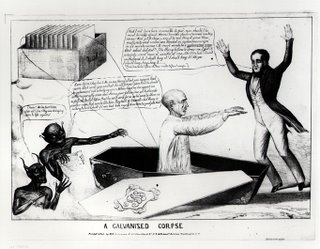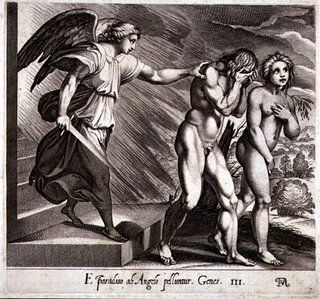
THE EDUCATION OF THE BODY
The body, when we are young, and if we have the luck to be healthy, runs on its own. We ignore it, feed it what we choose to feed it. Ignore it. Smoke too much, drink, and perhaps other more illicit things. We are learning, at this point, the things of the mind, the things of society, so that we may gain our portion of it. So that we will be employed, marry, have children, contribute to the others who surround us. But the body is not to be ignored it has a way of creeping along, to remind us that we are after all just frail creatures. So we become sick, and we have to turn away from the education of the society(ies) in which live. Instead, we must turn towards the society inside that contains whatever is truest about ourselves. Life has crept up to us, and we must be subsumed by ITS needs. And so we come down from the mountains we have built for ouselves, colliding with the glaciers of our own bodies, hoping that these encounters won't kill us. And we are stuck beneath these mountains on the rocky valleys of our own health, wondering what we are to do. We become stuck with our bodies and minds and the outside world, the education(s) of the past seem more distant, atop the peaks from which we have been thrown down. This new education must train the body and the mind. The body must be kept healthy and the mind must be trained to tos aside the notions of the past - the education of the future life. We become ourselves, edging forward and flingin out our minds. To discover what is truest for us. "Free human dialogue" with ourselves, "wandering wherever the agility of the mind allows, lies at the heart of education." (Postman, 1996). We descend into ourselves thrown down from the lives we have created and which have been created for us.
Illness takes away the security of our mountain-top chalets. The lives we have built. The lives that we think we have chosen. All is lost on these rocky valley floors. We must stare around us and get our bearings. And then we can begin to see what has become of our lives and what we must wrench away from the illness and that which we must discard. Security has vanished into a mist and fog of choice, clinging to the rocky sides of the mountains which surround us. "Security is mortal's chiefest enemy." (MacBeth, Act III Sc. V) and so we are led from its grasp to rediscover what we mean to ourselves. What our lives mean to us. To stop living in our chalet and make the entire range of mountains our home. We can only find security now in those things that are most important to us. We cannot take health for granted, nor can we entirely trust the education that came before us. We are creatures searching for ourselves and for the lives that we think we have lost but which have merely been replaced by an existence more free and more difficult. One which will truly be ours.
We do not forget those around us, but our relations to them are changed, they merely travel down to see us from their own chalets. It is a visit for them, a test of compassion. While we inhabit these cold, misty and rocky valleys. They must find themselves in their own time, if they are to be happy and content when they come to see their own deaths. We are confronted with ours in what we hope to be the middle of our lives. This changes us, re-educates us, sets us on different paths and to different homes.
"For by the death-blow of my Hope/My memory immortal grew," writes Byron. We are reformed in memory and let the former education fall away, remembering what we may once have known, as infants. That the world is important in what we make of it, when we were learning what it was meant to have a separate body. To learn to use it and to learn to see the wonders that were then nameless around us. We are connecting body and mind with the filter of the memory and the lens of education. "'Education,' he said meditatively, 'I know enough latin to know that the word must come from educere, to lead out...'" (Morris, 1966). and so we are led out. Past former lives, guilts, memories, to the passions and insecurities of the present. Something that burns away the past like a cold moon trying to burn away the sun. Impossible you say. Perhaps. But the hope and the new life are built on the trying. Whatever becomes of it we are re-formed. And the world(s) we discover are renewed each day by the mere act of trying. What we are, what we have discovered of ourselves, we can forgive. We must. Otherwise the fall has meant nothing, and the pain must be avenged.
References:
Morris, William. News from Nowhere in The Collected Works of William Morris. Vol. XVI. Russell and Russell, London. 1966.
Postman, Neil. The End of Education. Knopf, New York. 1996.
Shakespeare, William. MacBeth.
Photo References(from top to bottom):
1) Can be found at this link.
2) Copyright Roger Perman. This and many others can be found here.









